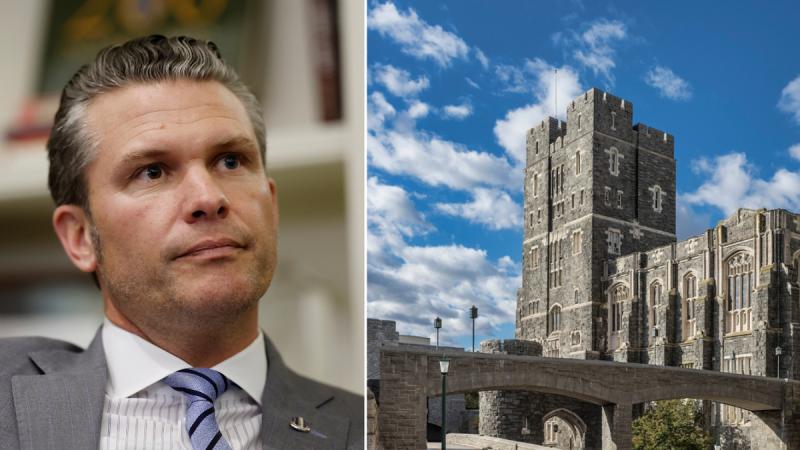January 25, 2024
Unprecedented ‘Hot Drought’: Water-Guzzling Crisis Grips the West for Centuries
 Water-guzzling ‘hot drought’ in the West is unprecedented in at least 5 centuries, study suggests
A recent study has revealed a worrisome trend in the western region of the United States – a water-guzzling phenomenon known as the hot drought. According to researchers, this parched condition, combined with scorching temperatures, is an unprecedented occurrence in the past five centuries. The implications of this study are significant, as it sheds light on the severity of the water crisis in the West and emphasizes the urgent need to address this issue.
The study, conducted by a team of scientists from the University of Utah and Columbia University, analyzed tree rings to reconstruct the climate conditions prevalent in the western region over the past 500 years. This paleoclimate data provides valuable information about historical weather patterns and helps researchers understand how current conditions compare to the past.
The researchers found that the current hot drought is a unique event, unlike anything experienced in the region for at least the past five centuries. The drought is characterized by extremely dry conditions combined with sustained high temperatures, creating an arid environment that exacerbates water scarcity. The severity and duration of this drought are alarming, significantly surpassing any historical precedent.
One of the key findings of the study is the correlation between human-caused climate change and the occurrence of the hot drought. While climate variability is a natural occurrence, the study suggests that human-driven global warming plays a substantial role in exacerbating these extreme weather conditions. Rising temperatures, along with a lack of precipitation, intensify the severity of the drought, making it considerably worse than what is naturally expected.
The consequences of this hot drought are far-reaching. The western region heavily relies on water from rivers, reservoirs, and snowpacks to meet its needs for agriculture, industry, and households. As the drought continues to drain water sources, the availability of water for consumption and irrigation dwindles, placing agricultural production and livelihoods at risk. Additionally, the reduced water supply contributes to an increased risk of wildfires and exacerbates ecological damage.
The study underscores the urgent need for proactive measures to address the water crisis gripping the Western United States. Effective water management practices, such as efficient irrigation techniques, water recycling, and water conservation awareness campaigns, are essential to mitigate the impact of the hot drought. Moreover, policymakers and communities must prioritize efforts to reduce greenhouse gas emissions, tackling the root cause of climate change and reducing the frequency and severity of extreme weather events.
The findings from this study serve as a wake-up call for the western region and the entire nation. The unprecedented hot drought reveals the vulnerability of our water resources, highlighting that climate change is no longer a distant, theoretical concern but a pressing reality. Addressing the water crisis in the West demands immediate action in terms of both short-term water conservation strategies and long-term climate change mitigation.
In conclusion, the recent study on the water-guzzling hot drought in the Western United States suggests that this phenomenon is unprecedented in at least the past five centuries. The severity of this drought, exacerbated by human-driven climate change, poses a significant threat to water resources, agriculture, and ecosystems. Urgent action is needed from policymakers, communities, and individuals to implement efficient water management practices and combat climate change to secure a sustainable future.
Water-guzzling ‘hot drought’ in the West is unprecedented in at least 5 centuries, study suggests
A recent study has revealed a worrisome trend in the western region of the United States – a water-guzzling phenomenon known as the hot drought. According to researchers, this parched condition, combined with scorching temperatures, is an unprecedented occurrence in the past five centuries. The implications of this study are significant, as it sheds light on the severity of the water crisis in the West and emphasizes the urgent need to address this issue.
The study, conducted by a team of scientists from the University of Utah and Columbia University, analyzed tree rings to reconstruct the climate conditions prevalent in the western region over the past 500 years. This paleoclimate data provides valuable information about historical weather patterns and helps researchers understand how current conditions compare to the past.
The researchers found that the current hot drought is a unique event, unlike anything experienced in the region for at least the past five centuries. The drought is characterized by extremely dry conditions combined with sustained high temperatures, creating an arid environment that exacerbates water scarcity. The severity and duration of this drought are alarming, significantly surpassing any historical precedent.
One of the key findings of the study is the correlation between human-caused climate change and the occurrence of the hot drought. While climate variability is a natural occurrence, the study suggests that human-driven global warming plays a substantial role in exacerbating these extreme weather conditions. Rising temperatures, along with a lack of precipitation, intensify the severity of the drought, making it considerably worse than what is naturally expected.
The consequences of this hot drought are far-reaching. The western region heavily relies on water from rivers, reservoirs, and snowpacks to meet its needs for agriculture, industry, and households. As the drought continues to drain water sources, the availability of water for consumption and irrigation dwindles, placing agricultural production and livelihoods at risk. Additionally, the reduced water supply contributes to an increased risk of wildfires and exacerbates ecological damage.
The study underscores the urgent need for proactive measures to address the water crisis gripping the Western United States. Effective water management practices, such as efficient irrigation techniques, water recycling, and water conservation awareness campaigns, are essential to mitigate the impact of the hot drought. Moreover, policymakers and communities must prioritize efforts to reduce greenhouse gas emissions, tackling the root cause of climate change and reducing the frequency and severity of extreme weather events.
The findings from this study serve as a wake-up call for the western region and the entire nation. The unprecedented hot drought reveals the vulnerability of our water resources, highlighting that climate change is no longer a distant, theoretical concern but a pressing reality. Addressing the water crisis in the West demands immediate action in terms of both short-term water conservation strategies and long-term climate change mitigation.
In conclusion, the recent study on the water-guzzling hot drought in the Western United States suggests that this phenomenon is unprecedented in at least the past five centuries. The severity of this drought, exacerbated by human-driven climate change, poses a significant threat to water resources, agriculture, and ecosystems. Urgent action is needed from policymakers, communities, and individuals to implement efficient water management practices and combat climate change to secure a sustainable future.
If you would like to delve into the world of investment topics , go to our partner project Wall Street Wizardry


